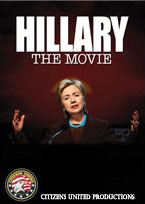
This week, we discussed some current challenges of American democracy.
Democrats and Republicans seem to locked in an era of radical partisanship with no end in sight. This partisanship has infected the mass media, government institutions, and even mainstream America.
Let's face it, America is facing some extreme challenges these days. It is no wonder that there are extreme measures being taken by both parties. The Democrats have attempted to alleviate these problems by getting the government involved. The Republicans want the government out.
One party sees government as a tool.
The other sees the government as the problem.

America's confidence in this government is at an all time low. The president can't get anything passed, congress can't come together on any major legislation, and the American people are (literally) taking to the streets.
How did we get here? Why did we vote for these people?
Maybe we were caught up in the hype that the political ideologues have created. And maybe there are more powerful forces behind the scenes.
Case in point: Citizen's United vs. the Federal Election Commission
This 2010 Supreme Court decision overturned a centuries old law that limited campaign contributions of organizations, associations, and corporations.

But when the conservative documentary company went to court to defend its critical film of Hillary Clinton (then a contender for the Democratic nomination for president), the Supreme Court ultimately ruled in their favor, citing the first amendment. But this case had greater consequences.
Corporations, organizations, and associations were granted the all the rights of U.S. citizens. If they have the right to the first amendment, then they must be granted all the rights, as if it were a person.
Are corporations now considered "people"?
Citizen's United and its conservative supporters view this decision as a great stride for democracy. They feel that companies should not be silenced from speaking, criticizing, or supporting political candidates.
Liberals, on the other hand, have reacted with great concern and alarm. They claim that corporations will now have the power to throw millions of dollars into political races. All of this money may manipulate elections. They fear that corporations will have the power to decide elections through lavish donations, and they will support any politician that will help them profit.
Who is right in this case? It's a doozy alright.
The first amendment is a crucial freedom in this country. Imagine if the government no longer allowed movies to be made, articles to be written, or pundits to speak their minds? Would that be censorship? Free speech is a cornerstone to American freedom. Maybe Citizen's United has a point.
But then again, most Americans feel that there already is too much influencing Washington. The candidate who raises the most money is the candidate who can reach the largest audience. Lobbyists for all sorts of companies and organizations spend money on politicians so that they will vote in their interests.

In the first election after the Citizen's United case (the 2010 midterm elections), corporations and interest groups spent $300 million dollars on supporting candidates. That was more money spent on one election than in the past ten years - combined! Obviously, corporations are ready and willing to throw their money in.
Republicans won back the House of Representatives and cleaned up in most elections. Is this why Democrats are so upset? What if there were major corporations ready to contribute to their party? Would they then support this decision?

On the surface, this decision gives a huge advantage to the Republican party. They are seen as the "business friendly" party, since they support lower corporate taxes and less regulation for these industries.
Democrats recognize this advantage and claim that corporations now have the power to basically appoint cronies who will always vote the way the companies want. This may mean less environmental regulations on energy companies and huge tax breaks for multinational corporations.
We watched two videos in class that had two different points of view. The Citizen's United video celebrated this decision, why the other video clearly denounced it.
What do you think?
0 comments:
Post a Comment